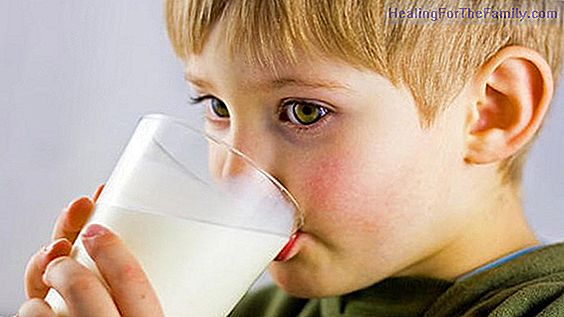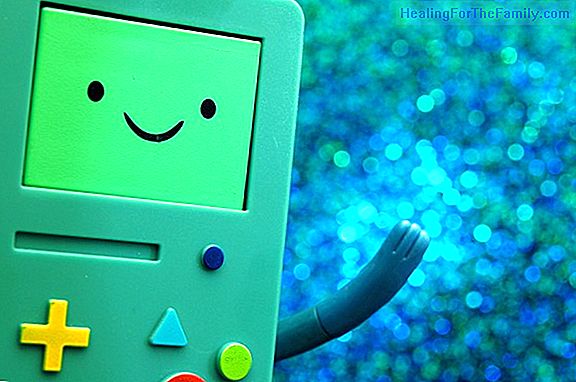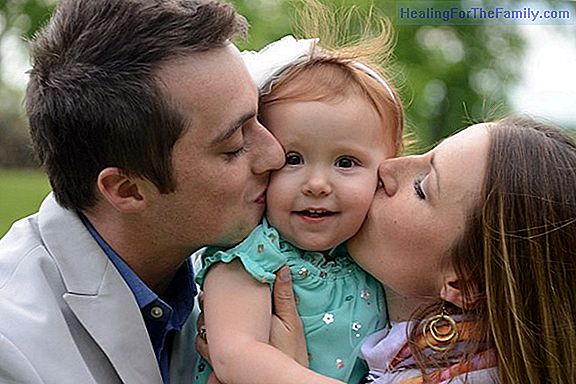Fear of not having enough milk to breastfeed the baby
Lack of self-confidence, tiredness, inexperience and 'well-meaning' advice from people closest to you are some of the qualitative reasons that convince a mother lactating that your milk is not enough to feed your baby. The key: trust in yourself. When these fears are established in the head of a mot
Lack of self-confidence, tiredness, inexperience and 'well-meaning' advice from people closest to you are some of the qualitative reasons that convince a mother lactating that your milk is not enough to feed your baby.
The key: trust in yourself. When these fears are established in the head of a mother, and even more so if she is new, it is very difficult to fight them. Therefore, sometimes they are directly related to the premature and unnecessary abandonment of breastfeeding exclusively; or in the best case, mixed breastfeeding is chosen.
How to know if I have enough milk to feed the baby

Among the quantitative aspects is mainly weight, which is the indicator par excellence that the child is growing. When assessing this increase, it is very important to take into account the WHO Growth Curves, which show the statistics of infants exclusively breastfed.
Another myth to banish is the size of the chest. Larger breasts do not have more milk compared to smaller ones. That is, the size of the chest does not matter.
Prolactin is the hormone that makes the mammary gland make milk. The more prolactin, the more milk. And the more suction, the more milk is produced, regardless of breast size. That is, if a baby is very hungry and breast a lot, a lot of prolactin is produced and, therefore, more milk.
But if you are not hungry or are not fed whenever you ask for it (the famous pattern every three hours instead of on demand), you will not breastfeed much and you will produce less milk. If this happens frequently, each time the mother will have less milk. So the only way to achieve higher production is to have more suction. When breastfeeding is established, milk production is regulated according to the needs of the baby; or children in the case of twins, and even triplets. Nature is wise.
Recommendations from mom to mom to get more calm:
1- Try to make 'deaf ears' to the advice that many people allow themselves to give-whether or not they know about breastfeeding-and focus on those of people who have training specific. As for example, health personnel trained in this matter, lactation consultants or experienced mothers.
2- It is highly recommended to go to the Breastfeeding Groups, in which many experiences are shared among women who are going through the same thing as you and who will understand you perfectly. There are many types of groups and approaches. If the people who form one do not convince you, look for another one in which you feel comfortable.
3- Remember that breast milk is very digestive and the baby digests it in two hours, so it is usual to demand breast every two or three hours. And that also includes the night, of course.
4-If you feel the softest breast after breastfeeding, do not panic, it is because they have been drained considerably, although infants never empty them 100%.
5- Around 3 months, babies experience the so-called 'Crisis of the three months', which is that being larger suck faster and also begin to be interested in the outside world. On the one hand, they take less time to suckle and, on the other, they are more distracted and playful, so many mothers think that they no longer have enough milk.
In summary, if you suspect that the child is not getting enough fat you can control - preferably without obsessions - the weight, the stools and your mood. But the most beneficial for the child and the mother will be not to take into account those "expert" tips on breastfeeding, because it will have a positive effect both on her confidence in herself and on the healthy growth of her baby.
Susana Torres.Collaborator of Guiainfantil.com and lactation consultant.












